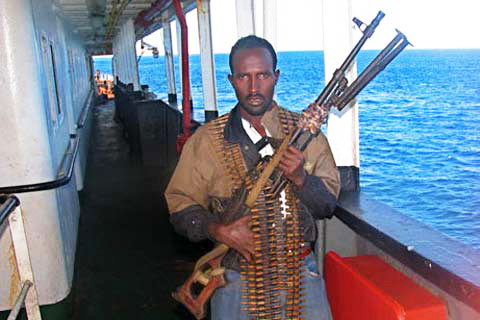
November 2012
While international efforts have caused a significant reduction in Somali piracy, they have also “trimmed the fat” so to speak, and the pirates that have survived the purge are complex and capable.
According a an Indian naval commander, Balbir Munjal, the fight against pirates has become more complicated. The surviving pirates have adapted by using more sophisticated weapons and paying closer attention to tactics than before.
Commander Munjal, who commands the ship Deepak, spoke aboard the INS Delhi at Mombasa, Kenya. He pointed out that pirates have developed intracit networks on land that help them with everything from intelligence, strategy and providing finances and weapons.
“Piracy is still there but has been reduced considerably. In the last three weeks we have been at sea, we have not encountered any piracy activity,” he said.
Munjal pointed out that at opposite ends of the ocean, increased cooperation between India and Kenya would be vital in finally ending the threat. He believes that quickly putting legislation in place that provides harsher punishment for pirates would speed up the pace.
Sibabrata Tripathi, an Indian diplomat to Kenya said on the same occasion that cooperation between these two nations would improve relations and help end piracy quickly. He also commended the Lamu port initiative, a Kenyan plan to add a second shipping corridor into the interior of the country. Tripathi believes this will open up the region, but that combating piracy is essential to the project’s success.
The Indian ships were docked in Mombasa to participate in a three-week training exercise to improve humanitarian response to disaster situations in South Africa.